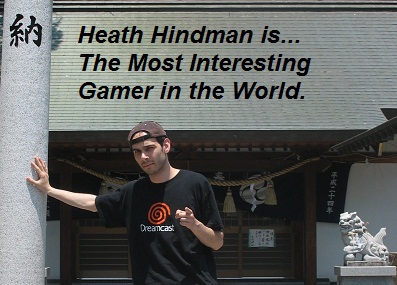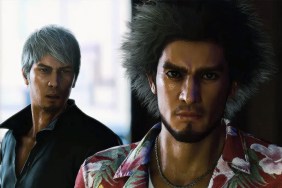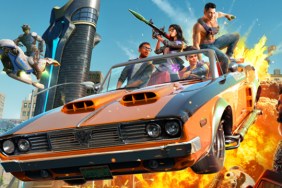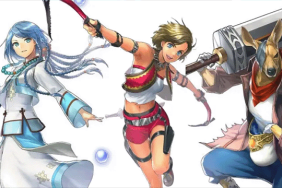He just might be better than you, but only if you're wrong.
I'm not trying to sound mean or inflammatory. I am simply stating that, objectively, my life is worth more than yours. It's nothing to be mad about, just an observable truth. Like science.
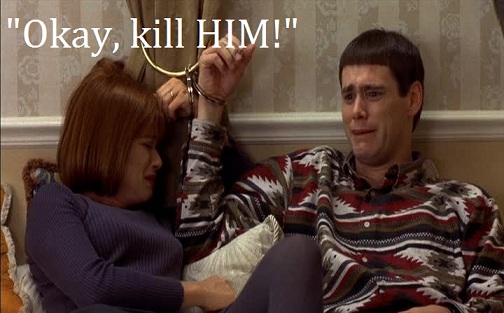
I submit for consideration that used game sales often lead to increased new sales (as in many industries), thanks to increased exposure, brand building, and recognition. Before my own examples, take a look across the Pacific, at the sales data for Etrian Odyssey (according to Media Create). The first week sales of Etrian Odyssey were about 32,000. Yet somehow the sequel, released a year later, managed over 85,000. Two years later, part 3 sold 94,000 and in 2012, part 4 once again broke the franchise record for best debut with over 97,000 copies put into the hands of anxious gamers. While one must admit that hard data linking used sales to new sales would be hard to produce, it's not hard to imagine if you know anything about humans. And if you believe there is not link, I submit that you in fact do not know very much about humans at all, and might not be one. It's also important to point out that there were more DSs in the wild in 2010 than there were 3DSs in 2012. That makes Etrian Odyssey IV an even bigger success, proportionally. Numbers for plenty of other series tell a similar tale.
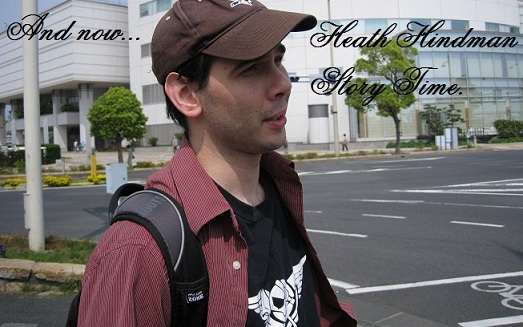
Then things went in reverse; my aforementioned neighbor playing my copy of Xenogears (which I got new) for a weekend convinced him to buy a his own new copy with the strategy guide, mere days later. The simple lending of a game led to a handful of new game purchases and created more fans.
A used copy of WipEout 3 led to my brother buying new PSP WipEout games and me making a day-2 purchase of WipEout 2048 for Vita.
I was the third owner of my copy of Final Fantasy Tactics, and I bought a used copy of FF7 from my friend at high school. This turned into untold amounts of new Final Fantasy purchases (including more than 2 years of being an FFXI subscriber). It also solidified Squaresoft as a developer to which I should pay attention — brand new copies of Threads of Fate, SaGa Frontier, Romancing SaGa, Kingdom Hearts, Chocobo Racing, and a bunch of others were bought new because of the brand recognition Square had built up within Castle Hindman. Used purchases still happened — like Parasite Eve — but they helped to make sure new ones also occurred — like Parasite Eve II and years later, The Turd Birthday. If I hadn't been able to score such a sweet deal, I might have passed up the FF series. Or perhaps by the time I got on board, I'd have not been interested enough to go backwards and buy all the games I'd missed. Square officially made more money from me, thanks to my ability to play used games. It's a personal example, but if you think my story is unique, you are, quite simply, comma, wrong.
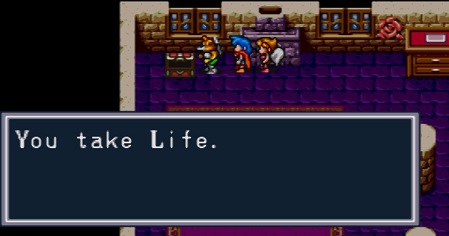
I bought ICO used, then got it used for a friend as well. My college housemate played my copy, and by the end of it all, my used purchase turned into multiple new-version sales of Shadow of the Colossus. If The Last Guardian were out, you can bet I'd have purchased it. Those used sales led to new copy sales, and created several fans.
About a year ago, I got Bioshock 1 and 2 via eBay. I dug what I played, and am currently awaiting the arrival of a shiny, new copy of Bioshock Infinite.
You might recall that the first Disgaea game didn't have a huge printing at first. Its used version cost a little more than a used game should have, but here's the thing: it was the only way I could obtain the game. The purchase of a used Disagea led to new purchases of parts 2 through 4, including the Vita port and two PSP ports. Like my used Final Fantasy did for Squaresoft, that used copy of Disgaea cemented Nippon Ichi as a developer that interests me, and Atlus USA as a publisher who earned my respect. Would these have happened without that fateful used game sale? Probably, but my falling in love with these guys would have undoubtedly happened at a later time, meaning some of my purchases would not have taken place. So who really would have suffered there?
I understand that today I could possibly download Disgaea instead of being all but required to hunt for a used copy. You know what, though? I fucking hate that. In the era of bandwidth caps, expensive memory cards, and hard drives that fill up way too fast, that's the last thing I want; an all-digital gaming future would make me completely quit buying new games. Exactly how much money does a game developer or publisher get from someone who quits gaming?
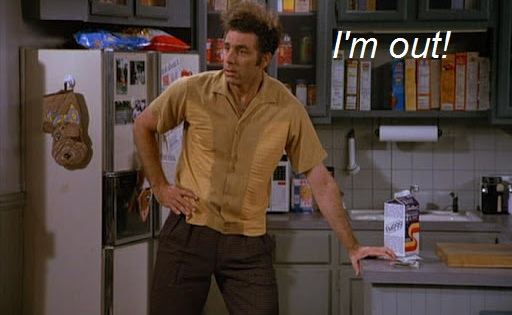
To eliminate used game sales is to eliminate double-A console games in general. When each game costs a guaranteed minimum of the MSRP, gaming budgets become tighter, and something has to be sacrificed. You as a gaming enthusiast reading a website like this one might make one decision, but what will Danny Massmarket do? He's not like you. He'll take fewer chances. He'll stick with what he sees as the sure thing: Call of Duty, Madden, and Assassin's Creed. This isn't to say they're necessarily bad games, but for Danny, they'll quickly become the only games.
Which do you think is more likely, from these two scenarios?
Danny Massmarket says, "Yeah, can't get as many games as I used to, so, you know, I had to go with Calla Duty, right? Every break, it's all about me and Chad lighting up fools in Calla Duty. It's a tradition like Christmas."
Danny Massmarket says, "Yeah, can't get as many games as I used to, but you know what? Chad's gonna have to play Calla Duty solo, because I got this Yakuza game. It looks cool, kinda like a GTA-type thing, but in Japan, fighting with wacky martial arts and stuff. I wanna try something new and I think I heard good things about this, you know? With only enough cash for one game, I'm betting on the new thing."
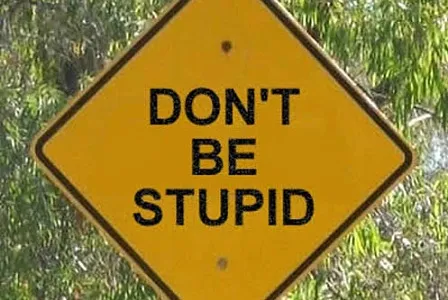
I know some people will herp, and then derp, and then make the counterpoint, "But if no one buys a game new, there will be no sequel at all!" and there is some validity to this. The amount, however, is less than a used game opponent would prefer to think. Ask yourself this: what business starts up with the ultimate goal of making one quick buck and then bow out forever? Not many. When you start a company, open a business, begin a franchise, your goal in virtually every case is to create something that builds a customer base. Most businesses lose money in the early going, but they accept this, because the bigger emphasis lies in the future. Therefore, with the start of a new series, it would make sense that many developers are prepared for meager earnings or even a loss. Bad management kills companies more than anything else. Some failed products are going to fail no matter what, whether second-hand sales are allowed or not. You can't go through a list of failed franchises and honestly point out ones that were killed by used games, and even trying would only expose your once-hidden stupidity.
If this industry is honestly threatened by the ability to buy and sell second-hand games—you know, kind of like we've been doing for decades with no problems—then it's too fragile to survive anyway. But let's cut the bull, because you know that's not the case. I'd say that one way to ensure more sales to me would be to not release bugfests that need three patches within a week of release. Of all the things to talk about in the games industry, why are we wasting time trying to thwart used games sales instead of talking more about the growing problem of half-finished games? If your game's players can upload compliation YouTube videos of the wackiest gltiches in your game, and it's less than a month old, um, you've got bigger things to worry about than second-hand software sales.
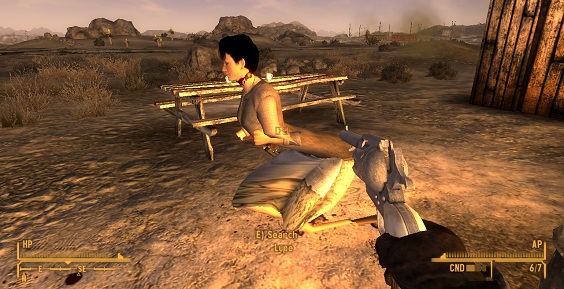
Used game sales might not send anything directly into a developer's pocket at the moment of sale, but time and time again, they prove to be a great building block for a franchise's audience. A thriving used market raises your potential profits for sequels, as well as increases brand recognition. Normally, companies pay big money for billboards, magazine spreads, and online banner ads. A used game is, in one way, a guarantee that your product and your company's name will be seen by someone — perhaps on a regular basis. Any CEO who doesn't see the value in that won't be a CEO for long.
See the big picture, my friends.
